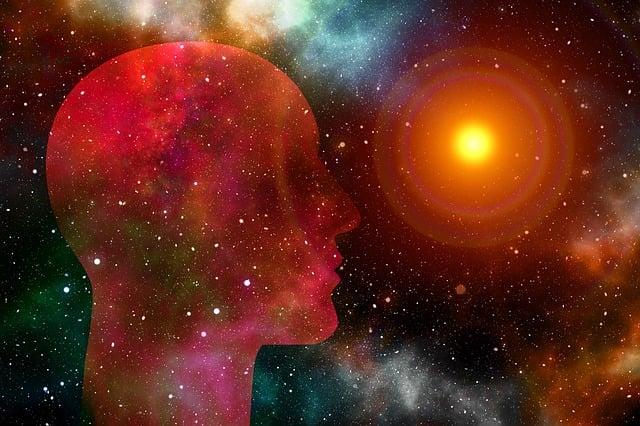Materialism and Transgender Identity
Philosophical “materialism” is defined in the online Encyclopedia Britannica as “the view that all facts (including facts about the human mind and will and the course of human history) are causally dependent upon physical processes, or even reducible to them.” This philosophy can be explained as being based on the idea that physical matter is all that exists, or that physical matter is reality. This form of philosophy is also called physicalism. It is commonly associated with atheism, although some argue that there is no necessary connection between them. It is, however, conceptually difficult to imagine any form of theism in a purely material universe.
How is this related to transgender identity? One of the notions that is sometimes heard in discussions of transgender identity is that a person claims to have been “born into the wrong body.” This immediately distinguishes the person from the body and is directly in conflict with the fundamental idea of philosophical materialism. Any person saying this implicitly considers the body to be separate from the person. This requires some form of nonphysical existence of the person apart from the body, or else the two cannot be so distinguished.
To a materialist, the body is the person, and there is nothing else apart from the body. There is no soul (Greek psyche, from which the word psychology, or study of the soul, is derived), and there is no spirit or spiritual realm. In other words, to a philosophical materialist, a person cannot be born into the wrong body, because the body is the person and there is no person with a soul or spirit apart from the body. How can a person claim to be born into the wrong body if the person is only the material body and nothing more?
If there is no reality beyond the physical, then the statement of being born into the wrong body is evidence of a malfunction of the body. If the mind is purely an outcome of the chemistry and physics of matter, and if there is no soul or spiritual existence of a person apart from the body, then such thoughts have no explanation and no meaning and are certainly wrong (by definition). They might be considered to constitute some form of what is traditionally called mental illness, if that can even exist in a materialistic reality.
Anyone who seriously claims that they are in the wrong body should be required to explain their beliefs about human existence in order to justify their evidently metaphysical claim. Is there a non corporeal existence of the person? If there is a reality beyond the physical, then there are many implications for human existence beyond gender identity. Perhaps there is a need to explore the nature of this reality to clarify the thoughts and feelings related to “gender” using a sort of comprehensive approach rather than accepting them without question.
Strict philosophical materialism reduces all experiences of human existence to absurdity. If all thoughts and actions are automatic and machine-like, being governed in a strict cause-and-effect pattern according to the material laws of chemistry and physics, then our thinking and feeling and deciding are all simply illusions. That would mean that we are not actually thinking at all, but that thoughts are automatically generated and are not under conscious human control. We have apparent consciousness and believe that we are in control of our thoughts, but none of that is real. The brain is constantly generating storms of chemical and electrical impulses that we experience as thoughts, but we are merely observers and not controllers of those thoughts. The same would be true for feelings and decision-making, and for all actions that result from the imaginary thinking, feeling, and decision-making processes.
In this hypothetical scenario of reality, all activities related to so-called science and philosophy are illusions also. Reason and logic would be illusions. If the entire universe simply runs as a giant, meaningless, purposeless machine based on material laws, including human existence as a very small part of the machine, then everything is reduced to a mechanical absurdity. The writing of this article would be one inevitable outcome of the grand universal machine, and not be due to the choice and consideration and ability of a human being with free will. The reading of this article at the present moment would also be the compelled activity of a soulless automaton who might have the illusion that reading it is by conscious choice.
In a purely materialistic world, a person with some transgender identity cannot possibly make any choice about that identity, or about anything else whatsoever. Any apparent disagreement concerning any aspect of gender identity by another person would also be impossible to control. The political discussions and arguments about related issues of medical care and policies and laws would all be automatic as well. It would all be one huge, complex machine producing predetermined outcomes at every step without any ability to influence the course of events. We would all effectively be only spectators in every bit of our own personal experience of existence.
So, to conclude, is transgender identity consistent with reality? “Being born into the wrong body” is incompatible with a materialistic universe, but so is essentially every aspect of our human existence. If the person is distinct from the body, then what is the nature of this dualistic or pluralistic reality? What is the fundamental substance of nature? What is a self-consistent philosophy for a transgender person? These are essential questions to answer. If we live in a materialistic universe, then we do not have any control, even over ourselves, and nothing really matters anyway. If reality is not purely materialistic, then we have a responsibility to seek the answers and live accordingly.

Image: Free image, Pixabay license.





